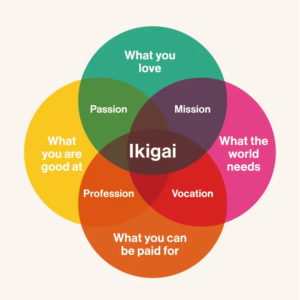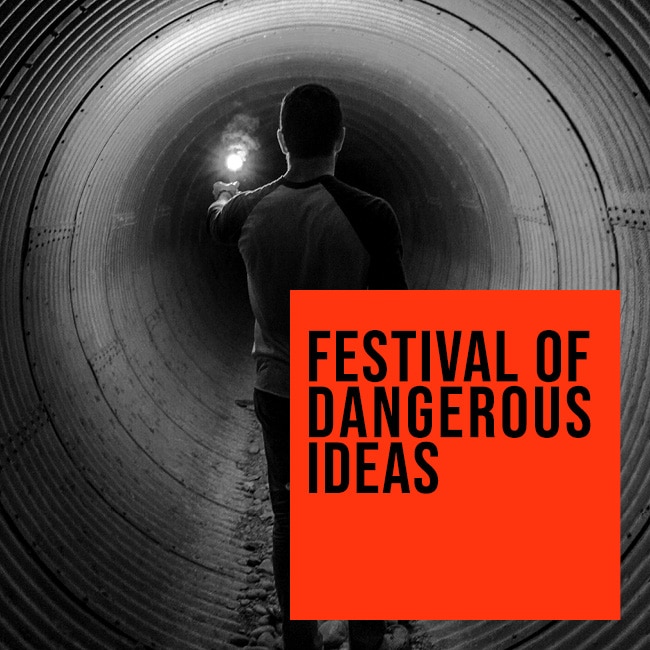Make an impact, or earn money? The ethics of the graduate job

Make an impact, or earn money? The ethics of the graduate job
Opinion + AnalysisSociety + CultureHealth + Wellbeing
BY Anna Goodman 1 JUL 2025
Young people can often feel torn between the desire to find or start a good job that is financially rewarding while striving to make a positive impact in the world. How should we aim to prioritise the balance between investing in ourselves, our skill sets, and what we feel the world needs?
In 2023, I graduated with a Bachelor of Arts, majoring in philosophy. For most of the first part of my life, my identity centered around learning and being a student. I spent my days in class, reading and writing, and discussing with my close friends about how we wanted to make the world a better place.
Figuring out what I wanted to do after university was a challenge. I knew what I cared about: making sure I continued learning, having opportunities to experience different industries while working with lots of different people, and earning enough money to be able to live well (and maybe save a little). Outside of work, I knew I wanted to be in a place where I would continue to grow to become a true, happy version of myself.
Now two years out of university, I have spent one of those years working as an analyst at a consulting firm. While it is hard work, I’m reaching my career goals of working in different industries, receiving a high investment in training, and earning enough to be a renter in Sydney.
During Christmas break in 2024, about nine months into full time work, I hit a natural point of reflection. Slowing down gave me time to think about what I really wanted from work, and life. I had been working some pretty long hours (as is common in many graduate jobs), and I started to think about what felt worth it to me.
Moral guilt started to creep in, as I began to wonder if I should be spending my time trying to do something more aligned with what I learnt at university and having a career with more purpose. However, with a challenging job market and the continuously rising cost of living, my “logical” brain wonders if it is the right time to make a career move.
So, how can we think about these big career and life decisions in a clear, methodical way?
Ikigai and finding our purpose
It’s hard to distill anything as vast and complex as “work in general” or “life in general” using a simple, one-dimensional framework. That being said, it’s not a new question to ask and reflect on what constitutes meaning in our work and in our lives.
One way we can start to unpack this tension is using the Japanese concept of ikigai – translated roughly to “driving force”. Writers Francesc Miralles and Hector Garcia published their book Ikigai: The Japanese Secret to a Long and Happy Life in 2016, after spending a year travelling around Japan. They interviewed more than 100 elderly residents in Ogimi Village, Okinawa, a community known for its longevity, and one thing that these seniors had in common is that they had something worth living for, or an ikigai.
Ikigai can be summarised into four components:
- What you love
- What you are good at
- What the world needs
- What you can get paid for

Asking these questions can get us closer to understanding what intrinsically motivates us and what gives us our reasons for waking up in the morning. Garcia recounts from his interviews with elderly residents in Okinawa: “When we asked what their ikigai was, they gave us explicit answers, such as their friends, gardening, and art. Everyone knows what the source of their zest for life is, and is busily engaged in it every day.”
Reading this, I can’t help but wonder if these answers are a simplification for argument’s sake. Striking a balance between earning enough money to do what I love in my free time (while also paying my bills) and doing something good for the world feels really challenging.
So, how can we make this framework feel more attainable for young people today?
Narrowing the scope
Something I was regularly told as I was applying to graduate jobs was that no one’s first job is perfect. In general, this can be a helpful premise, especially given our interests, circumstances, and contexts can change significantly over time.
One of the ways I began to feel less overwhelmed is by narrowing the ikigai questions around what gives my life meaning to what is giving my life meaning right now. It’s hard to see how I can make a positive contribution to the world through my work, unless I build up skills and knowledge over time that will allow me to have that impact.
For example, when I ask questions about what I love and what I am good at, these answers have changed substantially through my years of formal education and now as a worker. Right now, I have a set of skills I’m good at, however, these will evolve throughout my life and so will my enjoyment of them. In the short term, I enjoy the skills in research, analysis, and problem solving that my current job offers, because I know these are getting me closer to my long-term goal of being able to think pragmatically about key global issues and how we might be able to work to solve them. So, maybe it isn’t always helpful to ask the question “what am I good at” without also asking how this has changed, and how this might continue to change.
As young people, we’re changing and growing up in a world that feels unpredictable and unstable. Technology, culture, politics, economics, and the climate are almost unrecognisable from 10 or 15 years ago. It makes sense that trying to answer our four pillars of ikigai are challenging questions to try and answer if we’re thinking about a time span that gets us through most of our adult lives.
We need ethically minded people in all parts of the world, learning skills and becoming versions of themselves they are proud of. While our jobs are important in teaching and helping us figure out where in the world we want to go, we are more than the work that we do, and our careers, lives, and interests will almost certainly continue to evolve.
Part of graduating is realising that there is a whole wide world of options. This can be liberating and exciting, as well as stressful and overwhelming. By focusing on the “right now” – with regards to what we want, what suits our skills, and what the world needs – hopefully we can begin to wade through the complexities of post-grad life and start to carve a path that is fulfilling, fun and good for society.

BY Anna Goodman
Anna is a graduate of Princeton University, majoring in philosophy. She currently works in consulting, and continues to enjoy reading and writing about philosophical ideas in her free time.
Ethics in your inbox.
Get the latest inspiration, intelligence, events & more.
By signing up you agree to our privacy policy
You might be interested in…
Opinion + Analysis
Politics + Human Rights, Relationships, Society + Culture
In the face of such generosity, how can racism still exist?
Opinion + Analysis
Society + Culture
True crime media: An ethical dilemma
Opinion + Analysis
Society + Culture
Save the date: FODI returns in 2020!
Opinion + Analysis
Health + Wellbeing, Relationships





